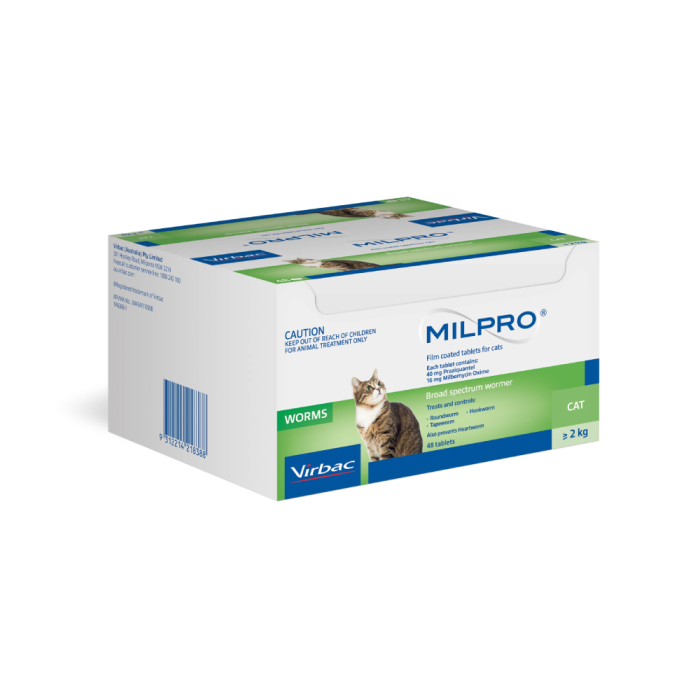Milpro Broad Spectrum Allwormer Cat 4.4 - 17.6lbs 48 Tablets
In stock
Description
Milpro is a broad spectrum allwormer packed with proven and trusted active ingredients. It is highly palatable and comes in small, ovoid tablets with innovative film-coating. Treating pets with Milpro provides protection for pets and their human companions against the threat of intestinal worms.
Dogs and cats can be infected with intestinal worms in a number of ways. They can get it through transmission from their mother during pregnancy or infancy, ingestion from contaminated food, from feces, fleas, skin penetration from contaminated soil, or from close contact with another animal. Hence, using worming products like Milpro, which is a broad-spectrum allwormer, is important as pet owners.
Why Choose Milpro?
- Treats and controls all major intestinal worms found in cats and dogs, including roundworm, hookworm, whipworm, and tapeworm, including hydatids. When used monthly, Milpro prevents heartworm.
- Developed to make dosing easier for the vet, pet owner, and pet, to aid in increasing compliance and treatment success.
- The innovative film-coating is highly palatable, with real liver flavouring,
- and the tablets are small and ovoid in shape. The tablets may be hidden
- in food or accepted from the hand.
- Available in a range of sizes from small kittens to large dogs with scored tables to ensure accurate dosing.
More Information
| Animal Type | Cat |
|---|---|
| Possible Side Effects |
|
| Directions for use | General Directions:
For Cats: The cat formulation is not suitable for use in dogs. Indications: Treats and controls roundworm (Toxocara cati, Toxascaris leonina),
|

